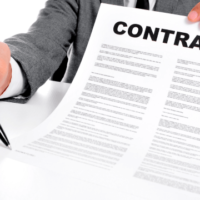How to Pick the Right Destination Management Company
When you’re putting together an important professional event, whether it’s a conference, a summit, a retreat, or a special occasion without a precedent, choosing the right planning partner is key. If you’re hosting your event in a different city than your own, the stakes are even higher when it comes to selecting a team of experts who know exactly what they’re doing every step of the way. You need professionals on your side who can be trusted with everything from high-level decisions to tiny details, both in the planning stages leading up to the event and especially as it’s happening in real time.
So, to help you out, we’ve put together some tips on how to pick the right destination management company (DMC). Consider this list the online equivalent of your favorite form of headache relief, because that’s exactly what it’s meant to be.
1. Find out who’s who in your city of choice.
First things first: if you’re hiring a DMC, you’ll want the best and brightest team in your city of choice. Start by locating it on this DMC Network map showing all of its members by location. Each company that pops up here has met the industry’s gold standard of international accreditation, which is a very good place to start. A third option would be to contact the city’s Convention and Visitors’ Bureau (CVB) to ask for their recommendations.
2. Narrow the field and vet the contenders.
Once you’ve gotten the lay of the land and figured out who’s available where you need them, make sure the companies in contention are all well-established, well-reputed, and well-insured. Find out how long they’ve been in business, and take a good look at the online bios of the team members at each one. Make sure you’re comfortable with their level of experience and professionalism upon your first impression of each company. Since first impressions are the lifeblood of any DMC worth its salt, trust your gut.
3. Meet the finalists and ask for references.
Great DMCs have happy clients on speed dial. Ask for the contact information of a relevant client or two they’ve worked with, or to save yourself some time, check out the range of online (or otherwise readily available) testimonials they offer. Arrange a phone call or, better yet, an in-person meeting to discuss your overall needs and get a feel for the team members you’ll potentially be working with. Do you feel like you’re in good hands? Are their past clients coming back for more and quick to recommend that you hire the DMC for your event as well? These are good signs. It’s time for an RFP.
4. Request a proposal, and be specific.
Ready to get down to brass tacks? Request a proposal. In your request, clearly explain your program’s goals and objectives, the number of attendees for each portion of the program, and as many basic requirements as you need (staffing ratios, budget ranges, transportation needs, etc.) Be specific about what your judging criteria will be; it will save everyone involved a ton of time and money in the long run if you’re completely up front and detailed about what you need.
5. Get ready to rock and roll.
Once you’ve got it all in a proposal and are feeling confident about what’s included, it’s time to move on to the contract phase. At this point, you know what to do.


